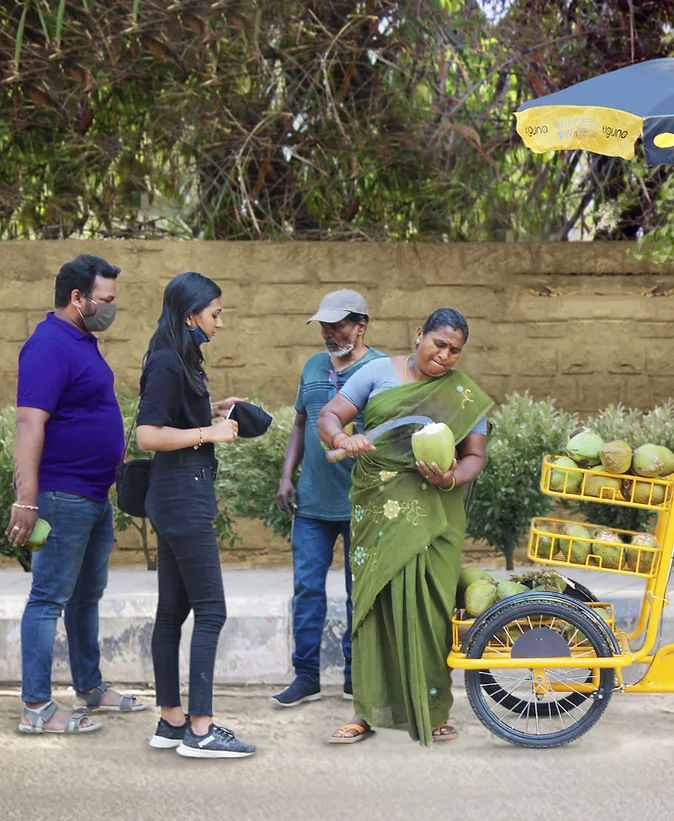Women street vendors are the backbone of many local economies worldwide, yet they often face an array of challenges in their daily pursuit of livelihoods. These challenges range from economic constraints to societal stigmatization and legal hurdles. However, numerous solutions exist to support and empower these resilient women, enabling them to flourish in their entrepreneurial endeavors.

Challenges Faced by Women Street Vendors
Economic Constraints
Financial limitations pose a significant obstacle for women street vendors. Limited access to credit, savings, or formal financial services restricts their ability to invest in their businesses, expand their inventory, or adapt to market demands. Insufficient capital often hampers their growth potential.
Legal and Regulatory Hurdles
Many street vendors operate in an informal economy, lacking legal recognition or stable vending locations due to stringent regulations. They face constant threats of eviction, harassment, or confiscation of goods, hindering their business stability and growth.
Social and Gender Biases
Societal stigmatization and gender biases add another layer of challenge. Women street vendors often face discrimination or are subjected to stereotypes that undermine their credibility as business owners. Balancing household responsibilities alongside vending activities further complicates their entrepreneurial journey.
Solutions for Empowerment
Financial Inclusion and Access to Resources
Addressing financial constraints is critical. Initiatives facilitating microfinance tailored to the needs of women street vendors can offer them accessible credit. Additionally, creating savings and credit groups or providing financial literacy programs can bolster their financial management skills.
Legal Support and Advocacy
Advocating for fair policies and legal recognition is paramount. Collaborating with local authorities and policymakers to create supportive regulatory environments can safeguard the rights of women street vendors. Legal reforms ensuring protection against harassment, eviction, and confiscation of goods are essential steps toward empowerment.
Skill Development and Training
Equipping women street vendors with essential skills is vital for their success. Offering training programs in entrepreneurship, marketing, financial literacy, and product development enhances their business acumen and market competitiveness. Vocational training can improve the quality and variety of goods they offer.
Technology and Market Access
Leveraging technology can significantly expand their market reach. Platforms that facilitate online sales, digital payments, or marketing tools enable access to a broader customer base. Utilizing mobile apps or social media can help them promote their products effectively.
Collective Support and Community Engagement
Encouraging community support is crucial. Advocacy groups, NGOs, or cooperative networks can create solidarity among women street vendors. Collaborative efforts foster resource-sharing, knowledge exchange, and a stronger collective voice in addressing common challenges.
Ways to Support Women Street Vendors
Patronizing Their Businesses
Directly supporting women street vendors by purchasing goods from them can significantly impact their livelihoods. Encouraging others to do the same amplifies this support.
Raising Awareness and Advocacy
Spreading awareness about their challenges and contributions is vital. Amplifying their voices through social media, community engagement, or local campaigns raises visibility and support for their cause.
Volunteerism and Collaboration
Engaging in volunteer activities or collaborating with organizations that provide vocational training, financial literacy, or legal aid can make a tangible difference.
Empowering women street vendors is not just a matter of economic independence; it is a step towards building more inclusive and resilient communities. By addressing their challenges through financial inclusion, legal advocacy, skill development, technological innovation, and community support, we pave the way for their success. Collective efforts in supporting and empowering these women are fundamental to creating a more equitable and prosperous society.
